World
Out in the World: LGBTQ news from Europe and Asia
The UK’s general election will take place on July 4

UNITED KINGDOM
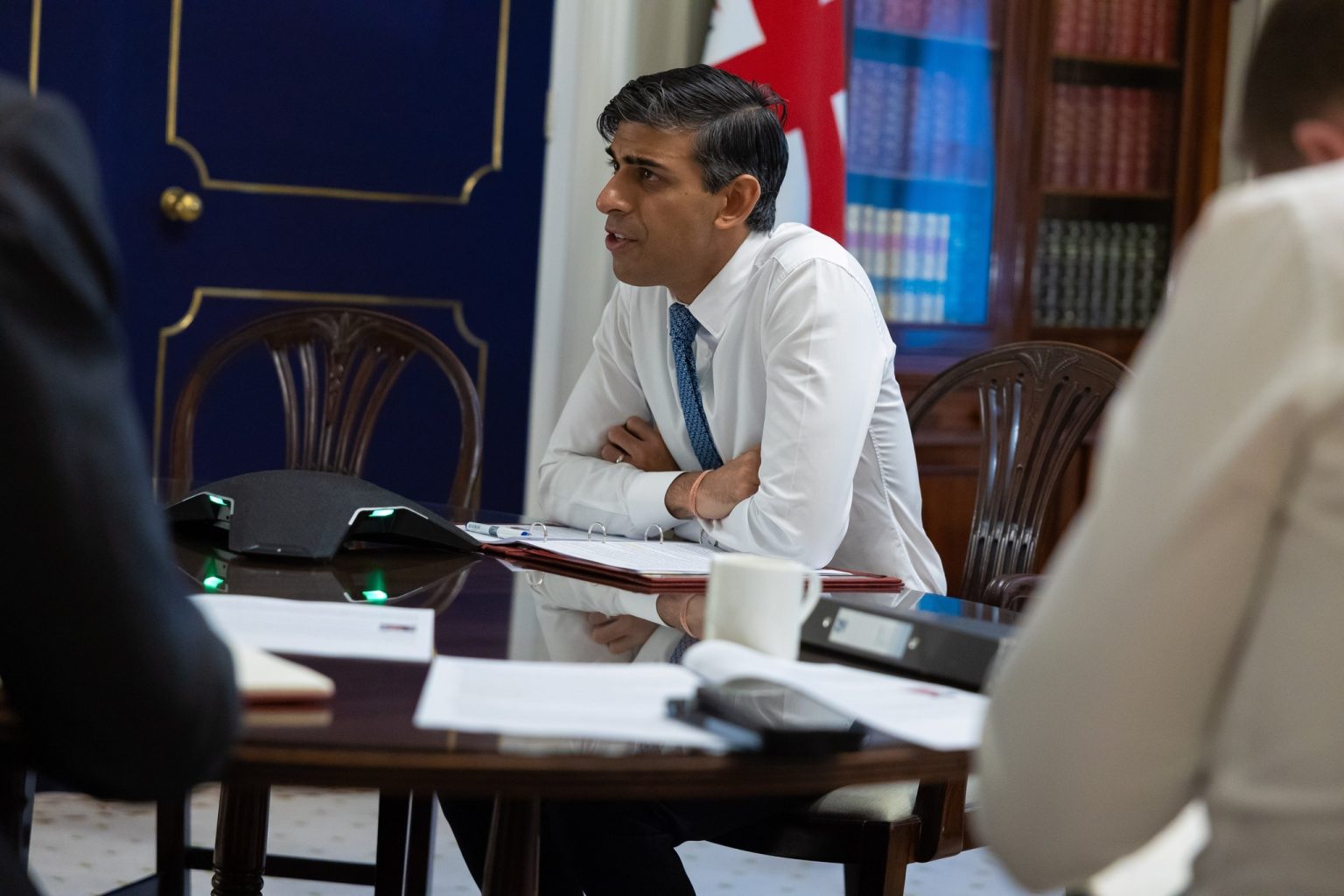
British Prime Minister Rishi Sunak called a long-anticipated election this week, sending UK voters to the polls July 4 and potentially spelling the end of 13 tumultuous years of Conservative Party rule in the UK.
Polls have long indicated that the UK Tories are deeply unpopular, putting them more than twenty points behind the left-leaning UK Labour Party, who are favored to win the election with a sweeping majority.
The last several years of UK politics under a succession of Tory prime ministers — five since 2011 — have been rocky, as the government has tried to manage pulling the UK out of the EU, a growing migrant crisis, and a succession of worsening domestic issues, not least of which has been the government’s handling of LGBTQ and particularly transgender issues.
The Tories have failed to bring in a long-promised conversion therapy ban, amid a growing moral panic around the existence of trans people, driven as much by British celebrities like JK Rowling as by a Tory caucus that’s grown increasingly hostile to LGBTQ issues over its time in power.
In fact, it was Tory Prime Minister David Cameron who introduced same-sex marriage legislation for England and Wales in 2013 — although it only passed parliament with the support of Labour, as the issue split the Conservatives.
Just a few years later, Tory politicians would be racing to declare themselves opposed to even recognizing the existence of trans people. The government has shelved a long-promised conversion therapy ban, and vetoed a law passed by the Scottish government that would have allowed trans people to self-determine their legal gender, as is the emerging norm in many countries.
The UK has even slipped from first to 15th place on ILGA-Europe’s ranking of European countries’ legislated LGBTQ rights during this time.
The Labour Party has not yet released a specific party manifesto as it relates to LGBTQ issues. However, leader Keir Starmer has pledged to introduce a “no loopholes” trans-inclusive ban on conversion therapy and has discussed reforming the UK’s gender recognition system to make it easier for trans people to update their legal gender — although the party no longer supports self-identification.
Starmer’s more recent statements on trans issues have caused concern for some activists. He recently came out in support of the findings of the National Health Service’s Cass Review on gender care for minors, which recommended a more cautious approach to prescribing care for trans youth.
He also recently voiced support for bans on trans women participating in women’s sports or accessing women’s medical centers, and for regulations requiring schools to out trans children to their parents.
“It’s[a] betrayal, a Judas move by Keir Starmer,” trans journalist India Willoughby told PinkNews. They have thrown us under the bus purely because they don’t have the stomach to fight.”
Sunak was required to call the election by the end of the year, but calling it early has put some of the opposition parties in a tight situation — most have not yet recruited a full slate of candidates to stand in all 650 electoral districts or drafted a complete party manifesto.
GERMANY
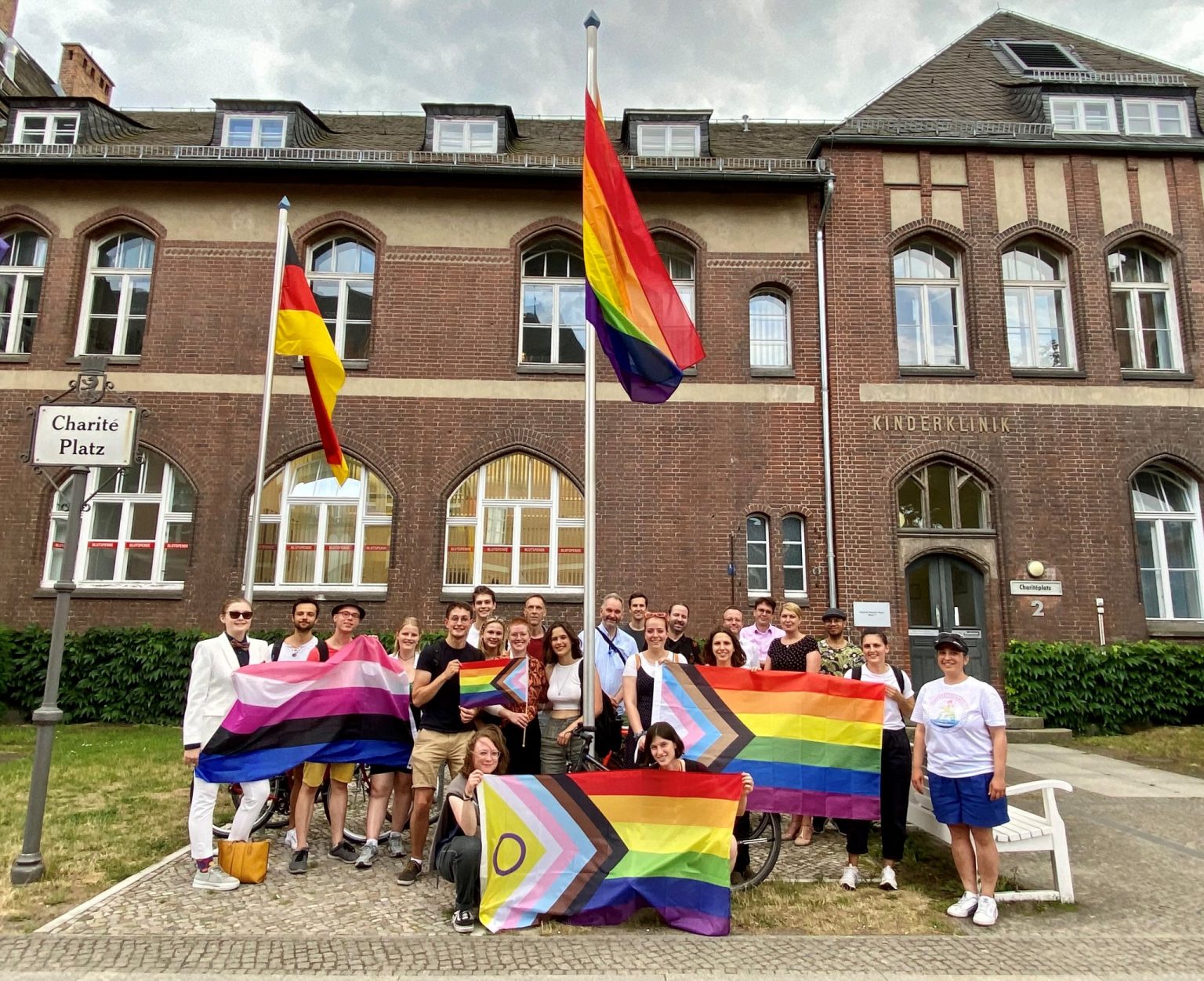
The Lesbian and Gay Association in Germany has launched a new campaign to amend Germany’s Basic Law to ban discrimination based on sexual orientation or identity.
The German Basic Law was enacted 75 years ago, in the shadow of World War II and was intended to protect freedoms from the evils that had been inflicted by the Nazi regime. Accordingly, Article 3.1 declares that “all persons shall be equal before the law,” while Article 3.3 expands that to list specific criteria that cannot be used to discriminate between individuals.
“No person shall be favored or disfavored because of sex, parentage, race, language, homeland and origin, faith or religious or political opinions. No person shall be disfavored because of disability,” the article says.
LSVD says that the exclusion of sexual orientation and gender identity from that list exposes queer people to discrimination. As an example, they point to Paragraph 175 of the Criminal Code, a Nazi-era law that criminalized same-sex intimacy that remained on the books until 1994.
“In 1949, homosexuals and bisexuals were the only group of victims of the National Socialists who were deliberately not included in Article 3.3. This is because men who loved people of the same sex were also subjected to the often life-destroying persecution under Paragraph 175 of the Criminal Code in democratic post-war Germany,” LSVD says in a press release.
In recent years, the Federal Constitutional Court has begun to read LGBTQ rights into the Basic Law, ruling that “sex” includes “gender identity” and that “sexual orientation” is akin to the other traits listed in Article 3.3. But LSVD says that without explicit inclusion in the Basic Law, discrimination has persisted.
“Many people from the queer community say that they experience discrimination by the police and authorities,” LSVD’s statement says. “Because the Basic Law also applies to state bodies, the extension of Article 3.3 could finally make discrimination against LGBTIQ* by state bodies and their employees legally punishable. Anyone who is not explicitly mentioned there runs the risk of being ignored in political and social reality.”
The LSVD says there are already plenty of examples of constitutions that protect LGBTQ+ rights, including in the German states of Berlin, Brandenberg, Bremen, Saarland, Saxony-Anhalt, and Thuringia, as well as the Charter of Fundamental Rights of the European Union.
LGBTQ activists in Germany have become particularly concerned to secure their rights as the far-right Alternative for Germany party has climbed in the polls and could become part of a future government.
“Making our constitution storm-proof is more urgent than ever. If right-wing extremists in Germany return to a position of power in future elections, we LGBTIQ* people face gradual disenfranchisement, social marginalization and, with it, a massive increase in hate violence and state discrimination,” LSVD says. “Without explicit protection against discrimination in the constitution, we would be largely defenseless against an authoritarian or post-fascist government such as those we are currently experiencing in Hungary or Italy.”
To pass into law, the constitutional amendment would require a 2/3 majority vote in both houses of the German parliament. While the current government has expressed support for the amendment, it would need the support of the Christian Democrats to reach the required majority.
SWITZERLAND
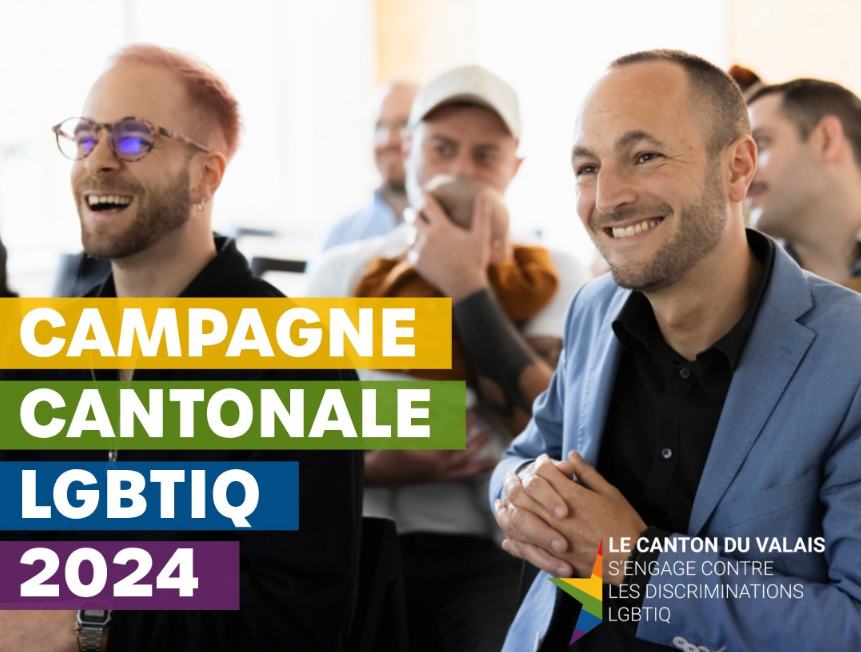
The Swiss canton of Valais passed a law banning conversion therapy by a vote of 106-21 in the cantonal parliament on May 16.
The discredited practice, which seeks to change a person’s sexual orientation or gender identity by exposing them to aversion methods that have been called torture by experts, has also been banned in the canton of Neuchatel since 2023.
The conversion therapy ban was included in a new Health Act that was supported by all parties in the Valais parliament except for the right-wing Swiss People’s Party.
“We are sending out a clear signal that these conversion therapies are unacceptable and have no place in Valais,” says Matthias Reynard, head of the Valais Department of Health.
A nationwide ban on conversion therapy has been under consideration by the federal parliament for several years. The lower house passed a resolution calling for a ban in December 2022, but the motion has stalled in the upper house.
Last month, the federal parliament voted to wait for the government to present its own conversion therapy bill, rather than push ahead with bills that had been submitted by two cantons to ban the practice.
But Switzerland’s cantons aren’t waiting for federal lawmakers. Local bills to ban conversion therapy are also under consideration in the cantons of Geneva, Zurich, Bern, and Vaud.
“Conversion therapy affects a significant part of our community. The latest figures from the Swiss LGBTIQ panel show that 9.5 percent of people who belong to a sexual minority and 15.5 percent of people who belong to a gender minority are affected,” Sandro Niederer, managing director of TGNS, told the news site Mannschaft. “The psychological consequences of such practices are undisputed — the ban is a positive signal for all LGBTIQ people!”
Many of Switzerland’s European neighbors already ban the practice. France, Germany, Belgium, Spain, Malta, Greece, Iceland, Norway, and Cyprus all ban conversion therapy, while neighboring Austria has had a ban under consideration for several years.
ALBANIA

A lesbian couple held a symbolic wedding ceremony at on the roof of city hall overlooking the heart of the Albanian capital city of Tirana on May 19 in a protest against the country’s lack of legal recognition for same-sex couples.
The couple, Alba Ahmetaj and Edlira Mara, applied for a legal marriage at the municipal office on May 17, asserting their right under Article 53 of the Albanian constitution, which states that “everyone has the right to marry and have a family.” However, the current Family Code restricts marriage to opposite-sex couples only.
Mara posted on her Facebook account that the restriction violates the constitution.
“Our request for a declaration of marriage symbolizes the first link in a long and difficult, but above all just, struggle. We are determined to follow the legal path and respect the procedures and institutions of our country, challenging the discriminatory content of the Family Code, to seek the recognition of our right to marry, equally with every other couple in Albania,” she wrote.
The ceremony has caused outrage in Albanian society. The couple have reported receiving death threats for appearing in public both before and after their public wedding.
Mara and Ahmetaj wanted to hold a religious ceremony but could not a find a religious official willing to bless the union in Albania. Instead, they flew in two priests from the U.K. to perform the ceremony.
The Albanian Catholic Church criticized the ceremony and distanced itself from the priests involved.
“Even though he appears as a Catholic clergyman, [he] has no connection with the Catholic Church and represents nothing of us,” Mark Pashkia, a spokesperson for the church, told Balkan Insight.
The couple involved in the suit are also raising twin daughters born through IVF three years ago. They have struggled to legally register the girls as their daughters because Albanian law only recognizes opposite-sex parents. They were forced to register Mara as the girls’ single mother, meaning Ahmetaj would have no rights over the girls if Mara dies or becomes seriously ill.
They sued the government for the right to be recognized as equal parents, but lost at the High Court. The couple are appealing the decision, and say they will fight all the way to the European Court of Human Rights if they have to.
Local LGBTQ activists have filed cases against the government seeking same-sex relationship recognition, but the cases have not progressed in local courts.
Years ago, the government had floated the idea of legalizing same-sex marriage, but the proposal was scrapped amid pushback from religious leaders in the Muslim-majority country.
In neighboring Kosovo, which is also an Albanian-speaking country, Prime Minister Albin Kurti has pledged to reintroduce a new draft Civil Code that would legalize civil unions and open the door to same-sex marriage, but he has faced pushback from Muslim lawmakers in his own party, who voted down the draft code in 2022.
Neighboring Greece legalized same-sex marriage earlier this year.
SOUTH KOREA
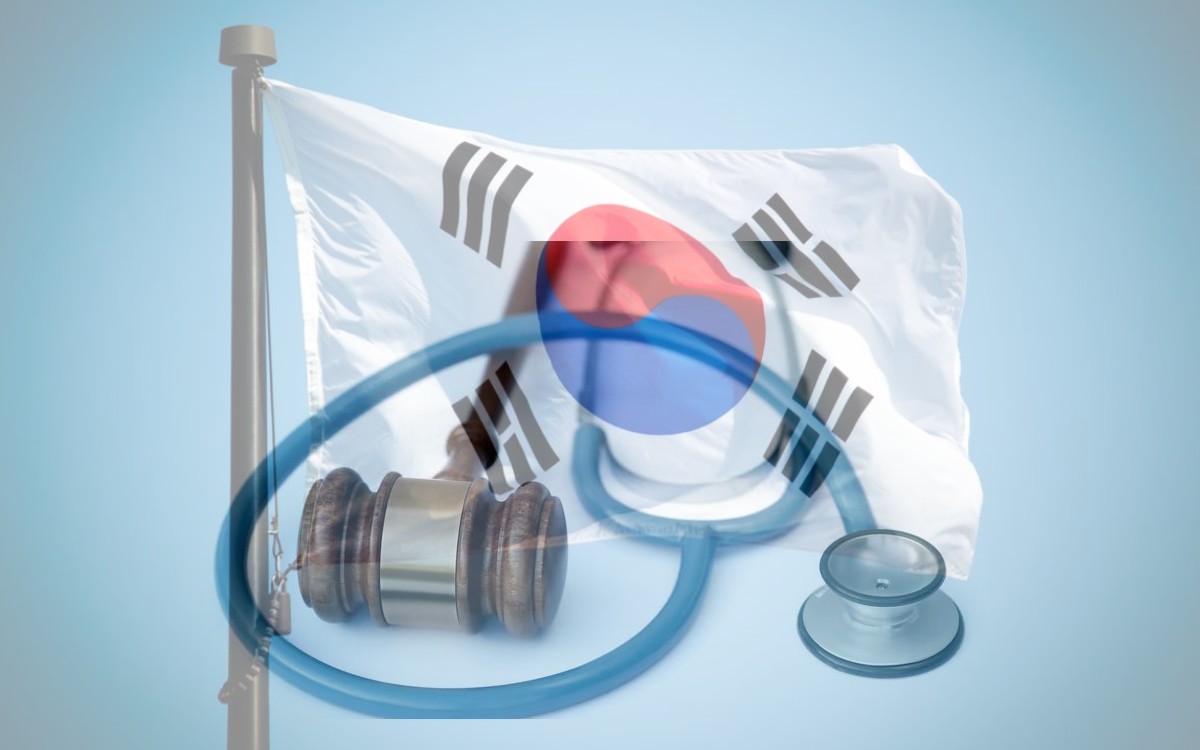
(Human Rights Watch) South Korea’s National Health Insurance Service should extend benefits to same-sex partners, Human Rights Watch said in an amicus brief filed before the country’s Supreme Court on May 16, 2024. The agency extends dependent benefits to heterosexual couples who are deemed to be in a de facto marriage, but has refused to extend those benefits to same-sex couples in a similar position.
The Supreme Court is currently considering whether the agency has impermissibly discriminated against a same-sex couple that was refused dependent benefits. In 2023, the Seoul High Court ruled in favor of the couple, concluding that the refusal to extend benefits constituted discrimination based on sexual orientation. The health agency appealed to the Supreme Court.
“The Seoul High Court correctly observed that the health agency’s refusal to recognize same-sex couples is discrimination,” said Lina Yoon, senior Korea researcher at Human Rights Watch. “We hope the Supreme Court will affirm the principle that nobody should be denied benefits solely because of their sexual orientation.”
The couple who brought the case had held a symbolic wedding ceremony in 2019, and one of the men registered his partner with the National Health Insurance Service as his spouse in 2020. The agency later revoked the partner’s dependent benefits following media attention to its effective recognition of a same-sex couple.
Human Rights Watch’s brief examines international and regional precedents for state recognition of same-sex partnerships, the status of lesbian, gay, bisexual, and transgender (LGBT) rights in South Korea, and the growing recognition of same-sex partnerships elsewhere in Asia.
South Korea has not created any framework for recognizing and supporting same-sex couples. The absence of any legal framework or protections for same-sex partners leaves LGBT people with few avenues to protect their relationships with partners and children, to safeguard their shared finances and property, and to access state benefits designed to support couples and families.
The government’s failure to recognize same-sex partnerships falls short of its human rights obligations, Human Rights Watch said. The Office of the United Nations High Commissioner for Human Rights has concluded that UN member states “have a positive obligation to provide legal recognition to couples, regardless of sexual orientation, gender identity and sex characteristics, as well as to their children,” and to extend those benefits offered to heterosexual couples without discrimination.
Among regional human rights bodies, the Inter-American Court of Human Rights has said that states must extend the right to marry to same-sex couples, while the European Court of Human Rights has said that states must create some form of legal recognition and protection for same-sex relationships.
As Human Rights Watch and others have noted, South Korea also lacks comprehensive protections from discrimination on the basis of sexual orientation and gender identity. Despite strong public support for a comprehensive anti-discrimination law, lawmakers have repeatedly failed to enact basic protections that would prohibit discrimination in employment, education, and other areas.
In failing to protect LGBT rights, South Korea is out of step with trends elsewhere in the region. In 2019, Taiwan became the first jurisdiction in Asia to extend the right to marry to same-sex couples, and Australia and New Zealand have subsequently recognized the right to marry as well.
Courts in Japan and Thailand have expressed concern about the lack of partnership recognition in those contexts, and Nepal’s supreme court has extended interim recognition of the right to marry while it considers a marriage equality case.
A growing number of states in the region also prohibit discrimination on the basis of sexual orientation. Australia, Fiji, Macao, the Marshall Islands, Micronesia, Mongolia, New Zealand, Thailand, and Tuvalu have prohibited sexual orientation discrimination in employment and other fields.
“South Korea’s lawmakers have failed to provide basic protection for same-sex couples by dragging their feet on nondiscrimination and partnership bills,” Yoon said. “South Korea’s courts now have the chance to uphold the state’s human rights obligations by ensuring that the state does not discriminate in the material benefits it does offer to committed couples.”
Chile
Far-right José Antonio Kast elected Chile’s next president
Advocacy group declares ‘state of alert’ over president-elect’s opposition to LGBTQ rights

José Antonio Kast on Sunday won the second round of Chile’s presidential election.
Kast is the far-right leader of the Republican Party who was a member of the country’s House of Deputies from 2002-2018. He defeated Jeannette Jara, a member of the Communist Party of Chile who was former labor and social welfare minister in outgoing President Gabriel Boric’s government, by a 58.2-41.8 percent margin.
The election’s first round took place on Nov. 16.
Kast and Jara faced each other in the runoff after no candidate received at least 50 percent of the vote in the first round. Kast will take office on March 11.
“Under his leadership, we are confident Chile will advance shared priorities to include strengthening public security, ending illegal immigration, and revitalizing our commercial relationship,” said U.S. Secretary of State Marco Rubio on Sunday in a statement. “The United States looks forward to working closely with his administration to deepen our partnership and promote shared prosperity in our hemisphere.”
The Washington Blade has previously reported Kast has expressed his opposition to gender-specific policies, comprehensive sex education, and reforms to Chile’s anti-discrimination laws. The president-elect has also publicly opposed the country’s marriage equality law that took effect in 2022.
The Movement for Homosexual Integration and Liberation, a Chilean LGBTQ and intersex rights group known by the acronym Movilh, in a statement acknowledged the election result. Movilh also declared a “state of alert, given this leader’s (Kast’s) public and political trajectory, characterized for decades by systematic opposition to laws and policies aimed at equality and nondiscrimination of LGBTIQ+ individuals.”
“We urge the president-elect and far-right sectors that follow him to understand and internalize (the fact) that the rights of LGBTIQ+ people are inscribed in the universality of human rights, and they are not built upon an ideology or a political trend,” said Movilh in its statement. “This is not, and never has been, a left-wing or right-wing issue, although some on both sides have gone to great lengths to suggest otherwise, without any basis other than their own partisan or electoral aspirations.”
Organizado Trans Diversidades, a group that advocates on behalf of trans and nonbinary Chileans, on social media said it will “continue the fight for our community’s human rights.”
Egypt
Iran, Egypt object to playing in Seattle World Cup ‘Pride Match’
Game to take place on June 26

Iran and Egypt have objected to playing in a “Pride Match” that will take place in Seattle during the 2026 World Cup.
The Egyptian Football Association on Tuesday said it told FIFA Secretary General Mattias Grafström in a letter that “it categorically rejects holding any activities related to supporting (homosexuality) during the match between the Egyptian national team and Iran, scheduled to be held in Seattle, USA, on June 26, 2026, in the third round of the group stage of the 2026 World Cup.” Football Federation Islamic Republic of Iran President Mehdi Taj told ISNA, a semi-official Iranian news agency that both his country and Egypt “protested this issue.”
The 2026 World Cup will take place in the U.S., Canada, and Mexico. The draw took place at the Kennedy Center on Dec. 5.
Iran is among the handful of countries in which consensual same-sex sexual relations remain punishable by death.
The State Department’s 2023 human rights report notes that while Egyptian law “did not explicitly criminalize consensual same-sex sexual activity, authorities regularly arrested and prosecuted LGBTQI+ persons on charges including ‘debauchery,’ prostitution, and ‘violating family values.’” Egyptian authorities “also reportedly prosecuted LGBTQI+ individuals for ‘misuse of social media.’”
“This resulted in de facto criminalization of same-sex conduct and identity,” notes the report.
The 2024 human rights report the State Department released earlier this year did not include LGBTQ-specific references.
Soccer has ‘unique power to unite people across borders, cultures, and beliefs’
The June 26 match between Iran and Egypt coincides with Seattle Pride. The Washington Post reported the Seattle FIFA World Cup 2026 Local Organizing Committee decided to hold the “Pride Match” before last week’s draw.
“As the Local Organizing Committee, SeattleFWC26’s role is to prepare our city to host the matches and manage the city experience outside of Seattle Stadium,” said SeattleFWC26 Vice President of Communications Hana Tadesse in a statement the committee sent to the Washington Blade on Wednesday. “SeattleFWC26 is moving forward as planned with our community programming outside the stadium during Pride weekend and throughout the tournament, partnering with LGBTQ+ leaders, artists, and business owners to elevate existing Pride celebrations across Washington.”
“Football has a unique power to unite people across borders, cultures, and beliefs,” added Tadeese. “The Pacific Northwest is home to one of the nation’s largest Iranian-American communities, a thriving Egyptian diaspora, and rich communities representing all nations we’re hosting in Seattle. We’re committed to ensuring all residents and visitors experience the warmth, respect, and dignity that defines our region.”
The 2034 World Cup will take place in Saudi Arabia.
Consensual same-sex sexual relations remain punishable by death in the country. The 2022 World Cup took place in neighboring Qatar, despite concerns over the country’s anti-LGBTQ rights record.
Spain
Victory Institute honors transgender Spanish senator in D.C.
Carla Antonelli describes Trump policies as ‘absolutely terrifying’
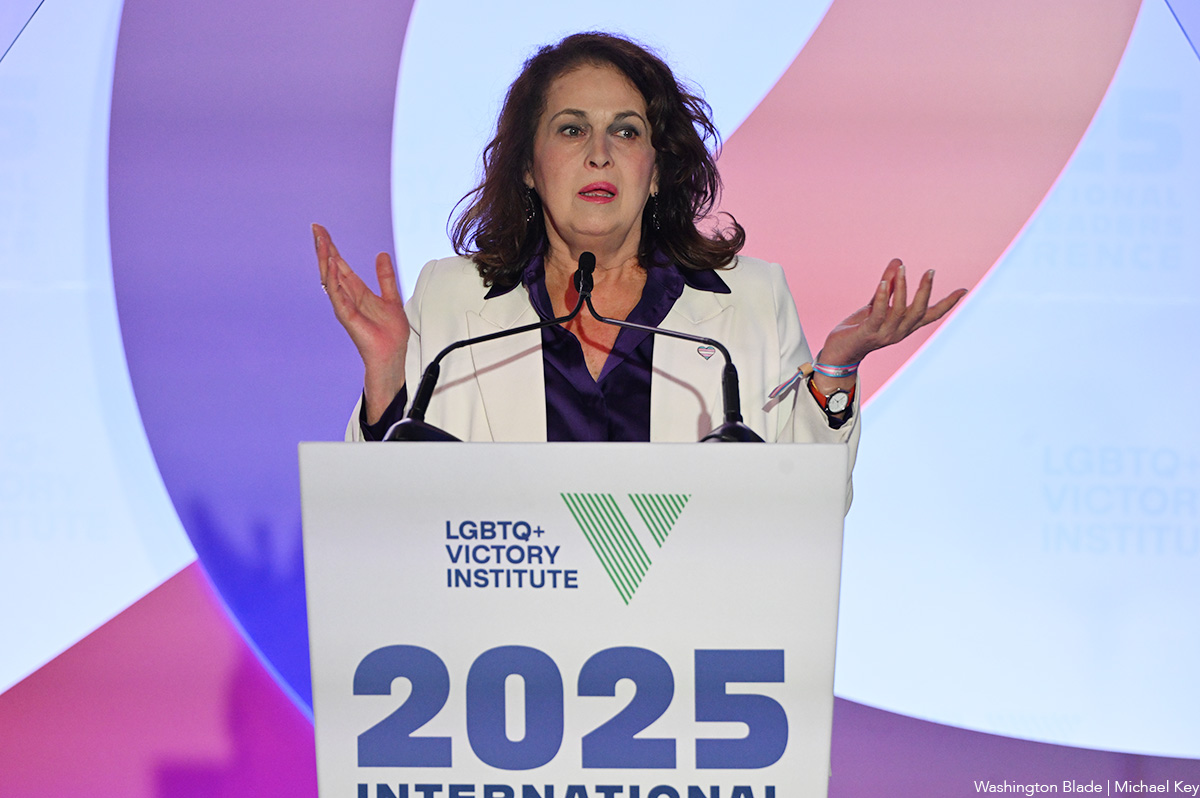
The LGBTQ+ Victory Institute on Dec. 5 inducted Spanish Sen. Carla Antonelli into its LGBTQ+ Political Hall of Fame.
Antonelli in 2011 became the first openly transgender woman elected to a regional legislative office in Spain when she won a seat in the Madrid Assembly.
She left Prime Minister Pedro Sánchez’s leftist Spanish Socialist Workers’ Party in 2022. Antonelli in 2023 became the first openly trans woman in the Spanish Senate when Más Madrid, a progressive regional party, named her Pablo Gómez Perpinyà’s successor in the chamber.
The Hall of Fame induction took place during the Victory Institute’s annual International LGBTQ+ Leaders Conference at the JW Marriott Hotel in downtown D.C. The Washington Blade spoke with Antonelli on Dec. 6.
“We are living in rather turbulent times, hence the importance and necessity of gatherings like this one … to unite in these times, come together, and develop common strategies and policies.”
Antonelli, 66, grew up in Güímar, a municipality on the island of Tenerife in Spain’s Canary Islands.
She said transphobia forced her to leave her hometown in 1977, and she turned to sex work to support herself. Antonelli’s political activism began that year when she joined the campaign against a 1970 law that criminalized consensual same-sex sexual acts and LGBTQ people.
General Francisco Franco, whose regime governed the country from 1936-1975, approved the Law on Social Danger and Rehabilitation. Spain in 1995 removed the statute’s remaining provisions from its penal code.
Antonelli in the 1980s became a well-known actress. She is also a former spokesperson for Federación Estatal de Lesbianas, Gays, Transexuales y Bisexuales, a Spanish LGBTQ advocacy group known by the acronym FELGTB.
‘We will not go back to the margins’
Antonelli in February gave an impassioned speech in support of trans rights on the Senate floor.
She specifically singled out members of Vox, a far-right political party, over their efforts to repeal a landmark 2023 law that allows people who are at least 16 to legally change their gender without medical intervention. Antonelli’s speech — and her proclamation that “we will not go back to the margins” — quickly went viral.
Antonelli told the Blade she received messages of support from people in Algeria, Australia, Turkey, Mauritius, and elsewhere around the world. She added her speech was “the conclusion of everything I can feel at any given moment, also the pride of having lived through all these historical processes.”
“For whatever reason, I was born in ’59, and I lived through the dictatorship in my country,” said Antonelli. “I lived through the dictator’s death and I lived through what Spain was like exactly 50 years ago. It began to walk in freedom, and so freedom must be defended.”
Antonelli feared US would not allow her into the country
The Victory Institute conference took place less than a year after the Trump-Vance administration took office.
Antonelli in June traveled to D.C. and participated in WorldPride 2025. She admitted the White House’s anti-trans policies left her wondering whether the U.S. would allow her into the country as a trans woman.
The White House only recognizes two genders: male and female.
President Donald Trump after he took office signed an executive order that bans the State Department from issuing passports with “X” gender markers. U.S. Citizenship and Immigration Services in August announced it will ensure “male aliens seeking immigration benefits aren’t coming to the U.S. to participate in women’s sports.”
Spain is among the countries that have issued advisories for trans and nonbinary people who are planning to visit the U.S.
“This speaks volumes about the policies of intimidation and targeting they’re implementing, policies that have made trans people scapegoats for all of humanity’s ills,” Antonelli told the Blade.
“In the United States, now with Trump, it’s absolutely terrifying because we’re talking about not just taking away a right, they’re going against our lives, against our very existence,” she added.
Antonelli in June met U.S. Rep. Sarah McBride (D-Del.), the first openly trans woman elected to Congress. Antonelli told the Blade she “watched with sorrow” how U.S. Rep. Nancy Mace (R-S.C.) and other Republicans treated the Delaware Democrat after her historic 2024 election.
“The first thing some vengeful scoundrels, thirsty for evil, do is prohibit her from entering the women’s restrooms,” said Antonelli.
“It’s nothing more than a desire to humiliate, to degrade,” she added. “Behind many of these policies lies a desire to do harm. In other words, these are bad people, evil people whose principles aren’t an ideology. They revel in it. They enjoy thinking about how they are making other human beings suffer.”
Antonelli also stressed “visibility” is “freedom.”
“The more they try to erase us, the more we have to be visible,” she said. “They know perfectly well that visibility inevitably leads to normality, to normalization, which is nothing more than what is repeated daily, routinely. What’s normal is what you see every day, so they’re trying to prevent us from being visible in every way possible, because what they don’t want is for society to accept, to live with this truth.”
Antonelli also offered advice for trans people who want to run for office.
“Always be upfront,” she said. “Don’t hold back, but above all, don’t forget where you come from. Because you might be lucky enough to rise and become a representative of the people, but don’t forget your origins.”
Antonelli noted she is the Más Madrid spokesperson for health, equality, culture, and other issues, but added she “will never, never, never abandon my trans sisters and the LGBTQ+ community.”
“I never severed times with my roots,” Antonelli told the Blade. “My roots are a conservative family, a town I had to flee and to which I didn’t return until 32 years later. My future, my past, is a street corner. My past is being able to make that journey in a democracy and go from that street corner to a seat in the Madrid Assembly and then from there to a seat in the Senate. And that is precisely the greatness of democracy.”
She ended the interview by a quote she gave to El País, a Spanish newspaper.
“Those who used to call us faggots have to now call us ‘your honors,’” said Antonelli.




















